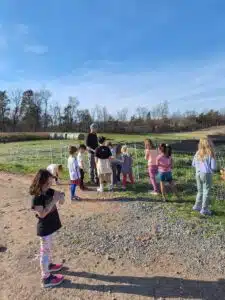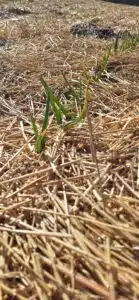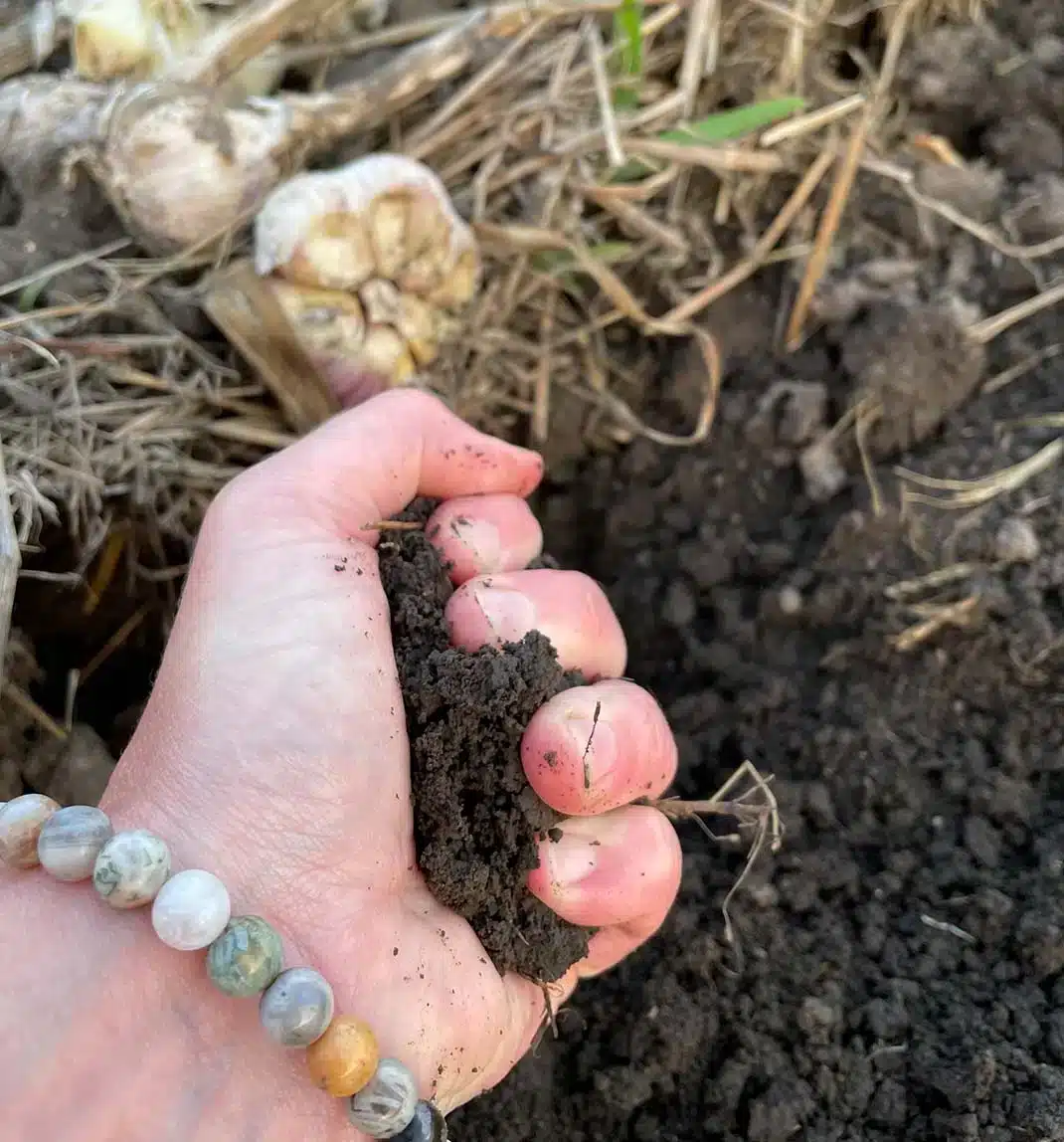 If you’ve taken any of the farm tours at Willowsford Farm you often hear Farmer Eric or Farmer Andrew talking about the importance of soil health (image on the left is sharing this message with the Jr. Chef Academy kids). It is difficult to pin down exactly what constitutes a healthy agricultural soil because soils vary by location and region, past uses and treatment continue to influence for many years or longer, and the types of crops being grown have different growing requirements. At Willowsford we are primarily growing organic vegetable crops that require adequate moisture of approximately an inch per week, a pH between 6-7, weed free fields, and sufficient macro and micro-nutrients matched to crop needs. A healthy organic agricultural soil is its own diverse ecosystem with bacteria, fungi, protozoa, nematodes, arthropods, and many other yet-to-be scientifically studied organisms. When healthy, this ecosystem provides the stable foundation four our cropping system by helping to cycle nutrients, retain water, suppress pests and diseases, and produce flavorful and nutritious produce.
If you’ve taken any of the farm tours at Willowsford Farm you often hear Farmer Eric or Farmer Andrew talking about the importance of soil health (image on the left is sharing this message with the Jr. Chef Academy kids). It is difficult to pin down exactly what constitutes a healthy agricultural soil because soils vary by location and region, past uses and treatment continue to influence for many years or longer, and the types of crops being grown have different growing requirements. At Willowsford we are primarily growing organic vegetable crops that require adequate moisture of approximately an inch per week, a pH between 6-7, weed free fields, and sufficient macro and micro-nutrients matched to crop needs. A healthy organic agricultural soil is its own diverse ecosystem with bacteria, fungi, protozoa, nematodes, arthropods, and many other yet-to-be scientifically studied organisms. When healthy, this ecosystem provides the stable foundation four our cropping system by helping to cycle nutrients, retain water, suppress pests and diseases, and produce flavorful and nutritious produce.
The soils at Willowsford Farm are very-well drained clay soils with almost no soil organic matter, because of this we rely on drip irrigation to provide enough water between rains. By utilizing drip irrigation, we are able to inject fertilizer solutions to provide certain nutrients, especially nitrogen, at critical growth points. To achieve many of our soil health goals we plant cover crops between vegetable crops. Cover crops are not harvested, they are turned into the soil using our spading machine which minimally disrupts soil structure and does not cause compaction. The soil ecosystem can recover relatively quickly with this minimal soil disturbance. Cover crops often grow quickly to out-compete weeds, they reduce soil erosion by water and wind, and their residues act like a nutrient and water sponge when incorporated into the soil making those nutrients available to the following vegetable crops. The Farm team typically runs the egg laying hens on living cover crop to supplement their feed resulting in those beautiful bright yolks and their droppings add fertility for the next vegetable crop. The cover crop and chicken rotations constitute the bulk of our fertility needs. To round out fertility requirements the Farm team takes and analyzes soil tests to determine what additional purchased-in fertility is required such as crushed limestone for calcium or other rock powders for micro-nutrients.
Since arriving in the spring of 2021, Farmer Andy and team have been investing their time and resources to  repair the degraded soil. Three years later their long-term investment is paying off. Yields are increasing, pest pressure is decreasing, and the soil structure improved. Why was this investment a top priority? Soil health is the key to a resilient farm, a farm that can withstand the growing risks posed to farms by climate change. With heat, drought and large rain events on the rise, this investment not only provides greater assurance for us today, but also for a more resilient tomorrow for the next generation at Willowsford.
repair the degraded soil. Three years later their long-term investment is paying off. Yields are increasing, pest pressure is decreasing, and the soil structure improved. Why was this investment a top priority? Soil health is the key to a resilient farm, a farm that can withstand the growing risks posed to farms by climate change. With heat, drought and large rain events on the rise, this investment not only provides greater assurance for us today, but also for a more resilient tomorrow for the next generation at Willowsford.
Do you want to learn more about the Farm and the efforts described above? Join us for one of the upcoming Greenhouse Seeding programs and learn more about how your food is grown, here.
Dive a little deeper and explore the Rodale Institute and Sustainable Agriculture Research and Education (SARE) websites to read more about all things cover crops and the importance of soil health.
Written by Andy Dunham

